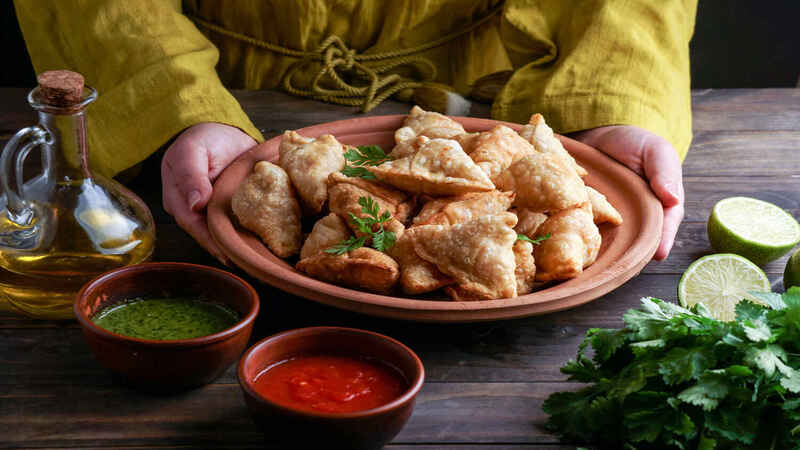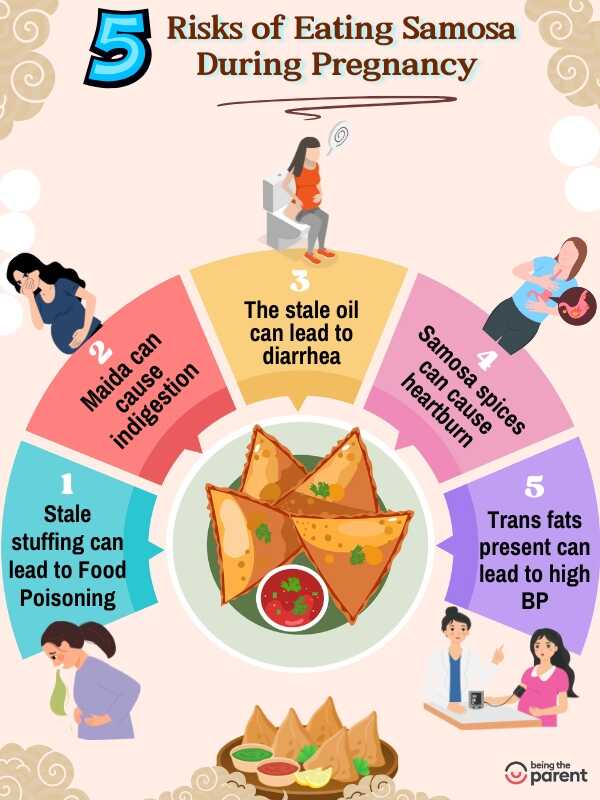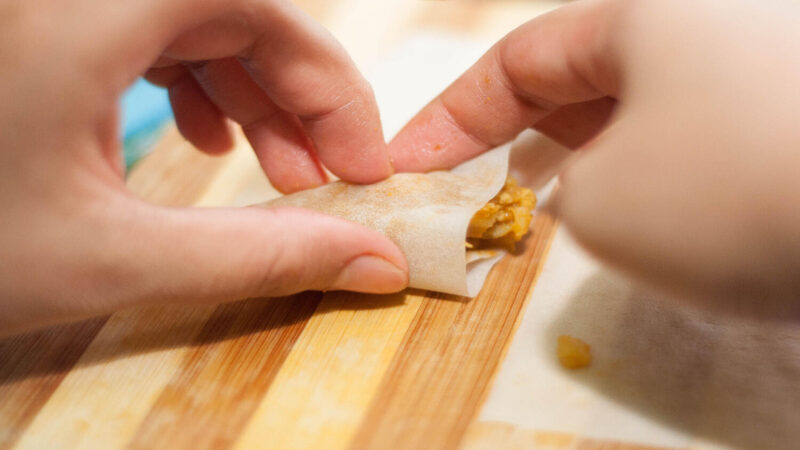
Do you like samosas? If you are nodding yes, then you must be aware of the feeling of biting into a warm crunchy samosa on a cold, or rainy day. Samosas can be very satisfying – both for the tongue and the stomach. Sometimes, you cannot stop with just one. But, eating samosa during pregnancy – is it safe?
Samosa is a deep-fried snack stuffed with potatoes and vegetables. It is not just a street food in India but a part of many households’ regular evening snacks as well. Samosa can be quite addictive and make you keep reaching for the next piece. When you are pregnant, you need to watch what you eat. Read on to know if you can enjoy samosa during pregnancy.
Video of Eating Samosa During Pregnancy
Is it Safe to Eat Samosa During Pregnancy?
Yes, you can eat samosa during pregnancy as long as you can digest it properly. If your body can digest the maida, oil, and stuffing, you can enjoy samosa during pregnancy.
However, you need to watch out for symptoms of indigestion. If you feel bloated or experience pain around your stomach, after consuming a samosa, it means your body is rejecting it. You should listen to your pregnant body and eat only those foods that are safe and feel good inside.
What Are the Risks of Eating Samosa During Pregnancy?

When you eat a samosa freshly made at home, it is safe. However, sometimes the store-bought ones seem to taste much better. When you eat the store-bought samosa, the following risks exist-
1. Stale Stuffing
You have no idea about the stuffing in the samosa. Be it an onion samosa, a potato, or even a vegetable samosa, you cannot be sure about the freshness of the stuffing. If leftover stuffing from the previous day is added to your samosa, it can lead to food poisoning.
[Read : Food Poisoning During Pregnancy]
2. Indigestion
Maida or refined flour can be difficult to digest for some. If you have a gluten allergy or find it hard to digest gluten during pregnancy, samosas can be troublesome.
3. Unknown Stuffing

Different pregnant women have different aversions. You have no control over the ingredients or spices they use in the store.
4. High on Salt and Fat
Samosa contains a lot of salt, spices and oil. Deep frying also increases the trans fat content in them. Fat, refined flour, and deep frying multiple times is not a healthy combination.
5. Bad Oil
Samosas are deep-fried in oil. There is no guarantee that the store is using good quality or fresh oil. Many random news reports suggest that fast food shops use old oil, sometimes even the oil discarded from bigger hotels. This helps them cut back on costs and increase their profits. It can be very unsafe during pregnancy.
Is Samosa Made of Maida?
Yes, the outer crispy layer of the samosa is made from maida. Maida or refined flour gives a crunchy texture when you deep fry it in oil. Only the outer part of the samosas contains maida. The stuffing inside will not have any maida but contains onion or potatoes or mashed vegetables.
Are There Any Healthy Alternatives to Samosa During Pregnancy?

We know samosas are not healthy but sometimes pregnancy cravings can get the best of you. If you are craving for a samosa, you can try these alternatives-
1. Dumplings
Instead of eating a samosa deep-fried in oil, you can opt for momos or dumplings. These are steamed and hence do not contain any trans fats that are best avoided during pregnancy.
2. Bake or Air Fry
You can bake or air fry the samosa. An air fryer uses very minimal oil and hot air to make the food inside crispy. Baking the samosa will also work and give you a samosa that is close to the deep-fried version, without the excess oil.
3. Change Stuffing
If you want to avoid potatoes, you can opt for plain onion samosas or make mashed vegetable stuffing.
Samosas are very tasty, come in different sizes, and are just perfect for a sudden hunger pang. It can be an easy to carry along snack too. However, the amount of maida, oil, and the unknown stuffing you eat from samosa shops may not suit all pregnant women. You can eat samosa once in a while without binge eating. If you notice any negative reaction, it is better to reduce or even avoid consuming it until after the delivery.
[Read : Top 10 Healthy Modern Snacks During Pregnancy]
FAQ’s
1. Is Maida Safe During Pregnancy?
Yes, you can have maida during pregnancy unless it causes some digestive issues. If you are gluten intolerant or suffer from pregnancy-related constipation, you should reduce your maida intake and substitute it with a healthier flour.
2. Can Samosa Cause Gas During Pregnancy?
Yes, it can. Samosa contains maida which can be difficult for some pregnant women to digest. The stuffing – potatoes, and onions both can lead to gas. The samosa can also ferment inside your stomach and lead to bloating and gas.
Read Also: Maggi During Pregnancy – Is It Safe?
